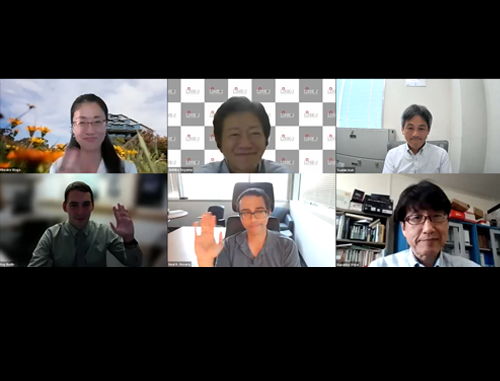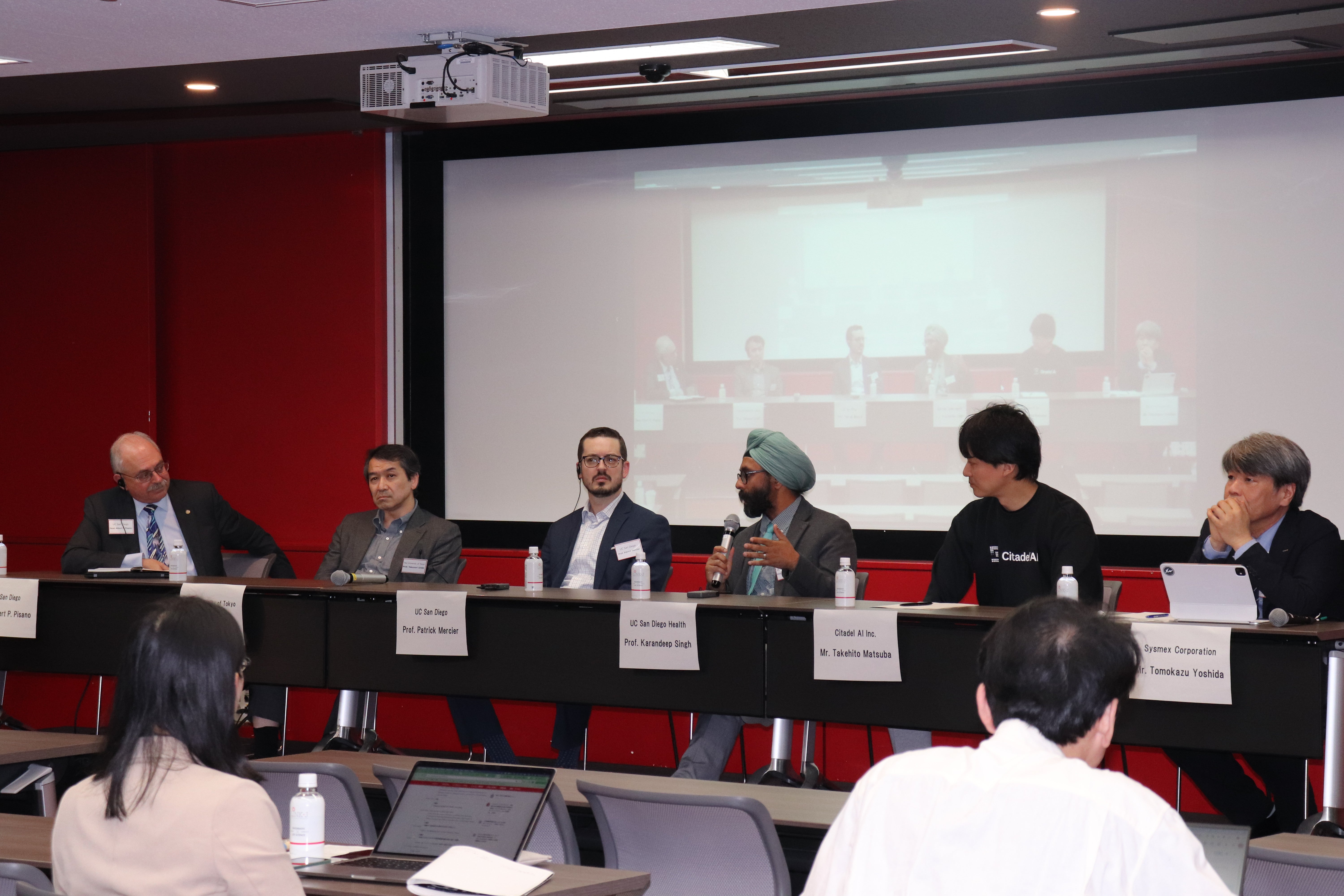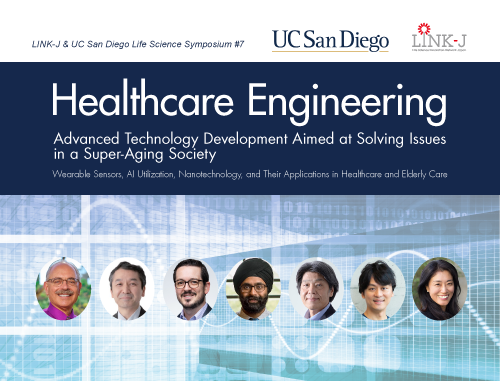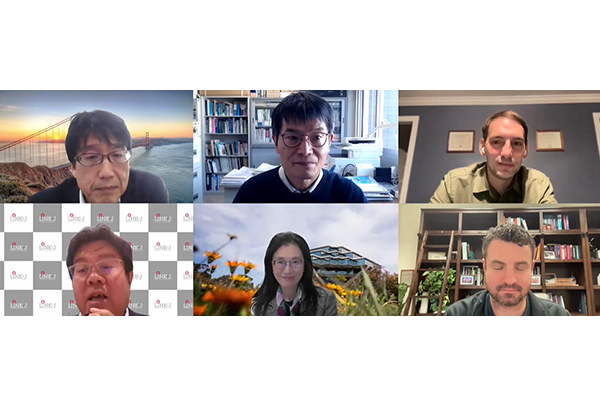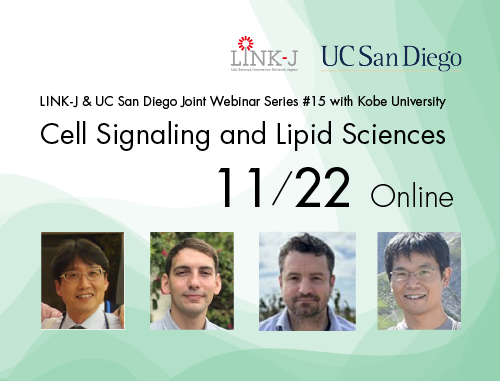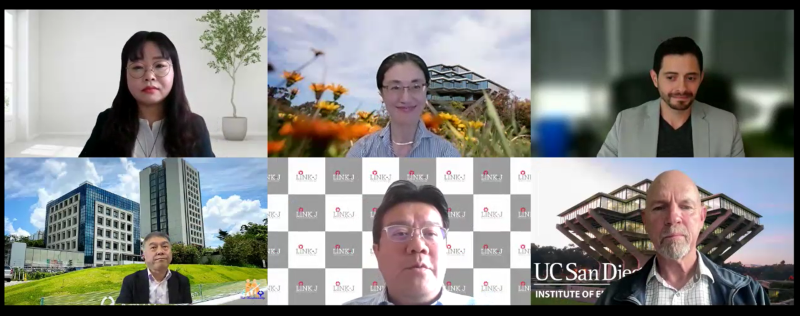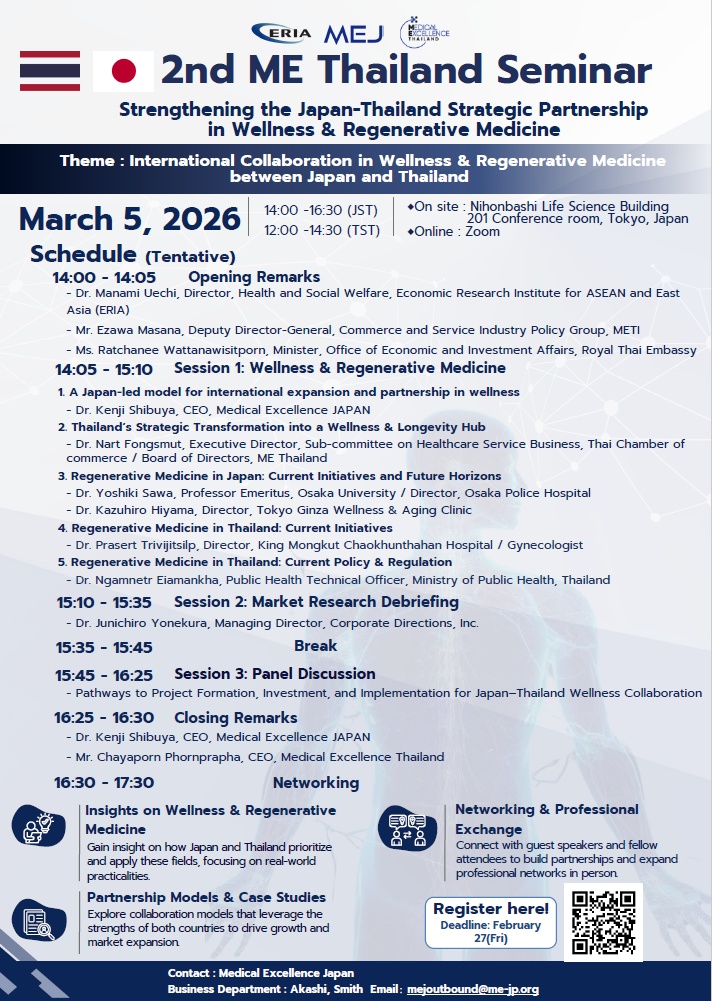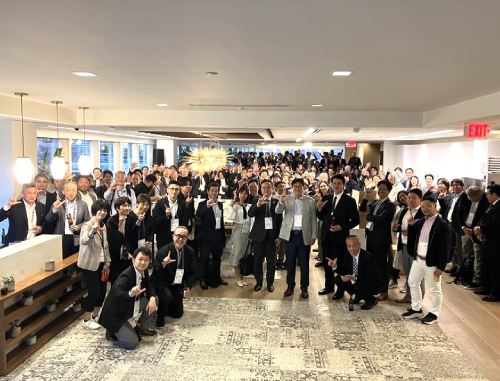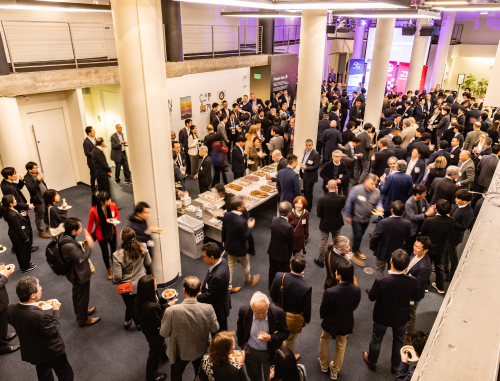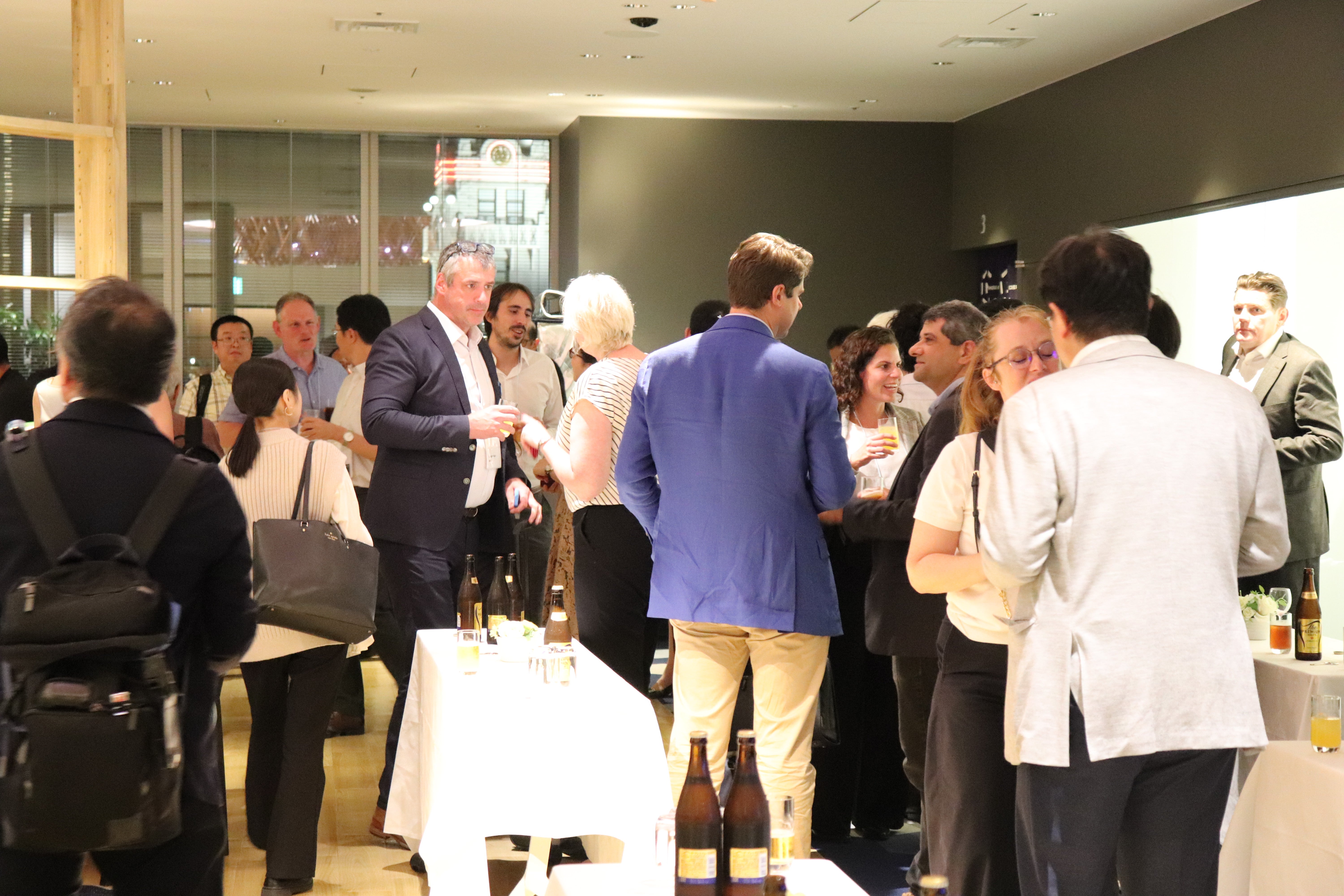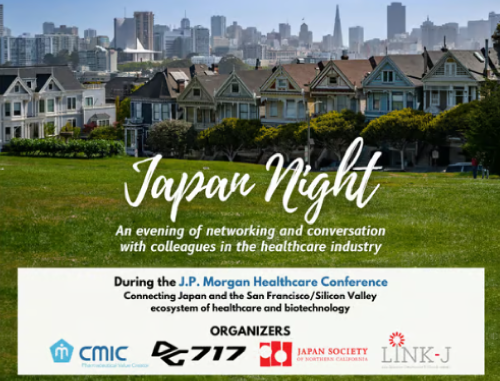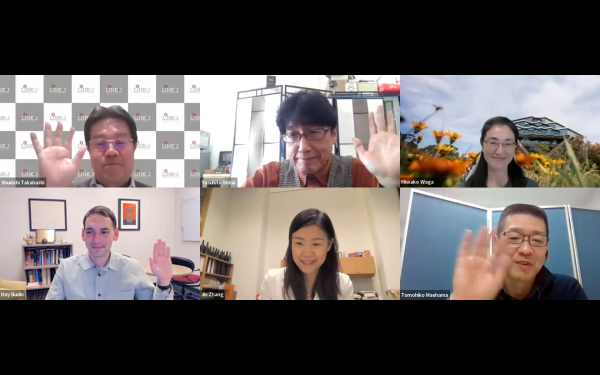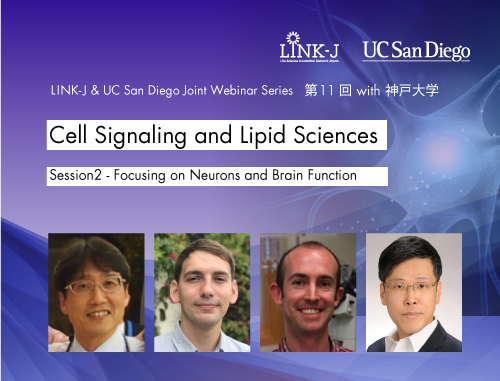LINK-J & UC San Diego Joint Webinar Series #11 with Kobe University "Cell Signaling and Lipid Sciences" Session 2 - Focusing on Neurons and Brain Function was held on March 9, 2023. (Host: LINK-J, Co-Host: University of California San Diego [UC San Diego])

Speakers
Dr. Ryan Hibbs, Professor of Neurobiology, UC San Diego School of Biological Sciences
Dr. Tomoyuki Furuyashiki, Professor of Pharmacology, Kobe University Graduate School of Medicine
Dr. Yasuhito Shirai, Professor, Graduate School of Agricultural Science, Kobe University
Dr. Itay Budin, Assistant Professor of Chemistry and Biochemistry, UC San Diego
Ms. Miwako Waga, Senior Director of International Outreach, UC San Diego
Akihiko Soyama, Chief Executive Officer, LINK-J
Presentations
"Nicotinic acetylcholine receptor structural pharmacology and gating transitions"
Dr. Ryan Hibbs, Professor of Neurobiology, UC San Diego School of Biological Sciences
Our lab focuses on using structural and functional approaches to understand signaling by ligand-gated ion channels in the nervous system. A major emphasis is on understanding nicotinic receptor pharmacology from a structural perspective. Here I will present some of our recent work using the muscle-type nicotinic receptor from the Torpedo ray as a structurally tractable reference for the human receptor at the neuromuscular junction. I will focus on how toxins from animals and plants, as well as drugs used in the clinic, act on the receptor, and how we can use this information to understand state transitions that underlie ion channel gating. These studies have revealed a new class of allosteric site partially buried in the lipid bilayer that small molecules important in anesthesia can leverage to cause muscle relaxation.
"Inflammatory mechanisms of stress and depression"
Dr. Tomoyuki Furuyashiki, Professor of Pharmacology, Kobe University Graduate School of Medicine
Stress is a strain of mental and physical functions caused by adverse and demanding conditions with internal and external factors. Stress aims to induce adaptive biological responses to promote well-being and survival. However, excessive or prolonged stress may cause mental and physical dysfunctions, increasing the risk of depression and other stress-related disorders. Studies with rodent stress models revealed that acute stress enhances stress resilience along with dendritic hypertrophy of prefrontal neurons via the dopaminergic system. In contrast, chronic stress attenuates the dopaminergic system and causes dendritic atrophy in the prefrontal cortex with microglia-driven inflammation. This inflammation is evoked via innate immune receptors TLR2/4 and exerts multiple functions via brain region-specific mechanisms with the lipid mediator PGE2 and proinflammatory cytokines. Besides, chronic stress mobilizes myeloid cells and promotes neural dysfunctions. Collectively, neural circuit remodeling driven by neural and systemic inflammation is responsible for shifting from adaptive to maladaptive responses to stress. In this presentation, I will introduce our recent findings on the inflammatory mechanisms of stress and depression and discuss their implications for therapeutic development for neuropsychiatric illnesses.
Recording is available on LINK-J's YouTube channel.
This webinar included time for Q&A and panel discussion, which led to interesting interactions with the audience. Thank you very much for your participation. We plan to offer similar sessions in the future. Stay tuned!
